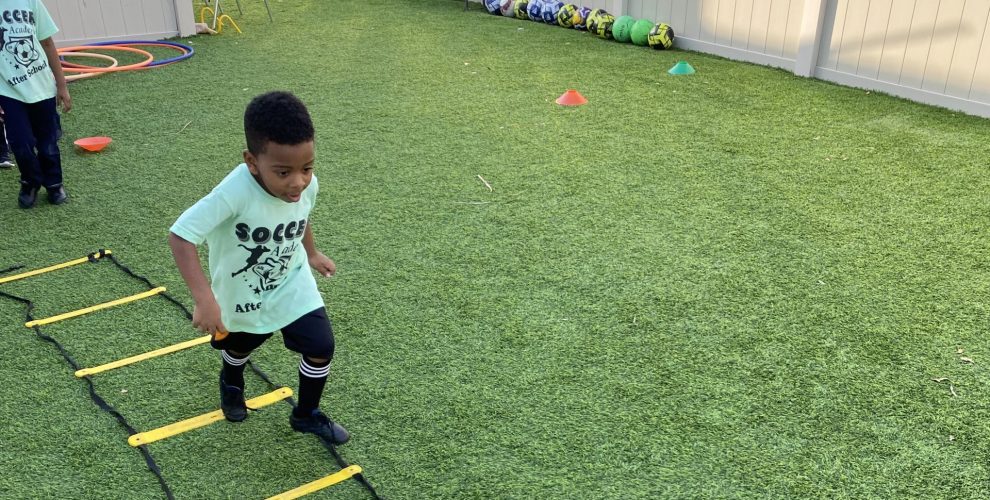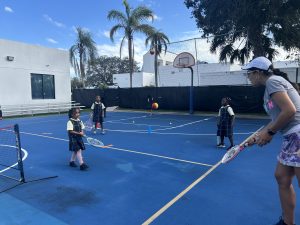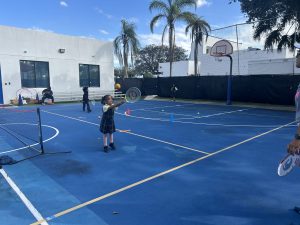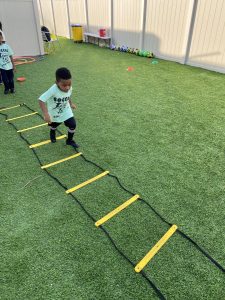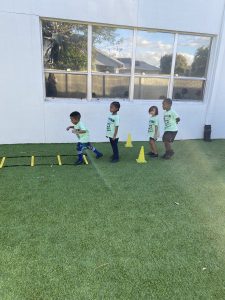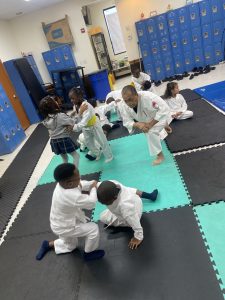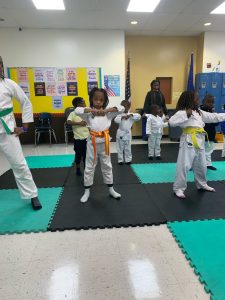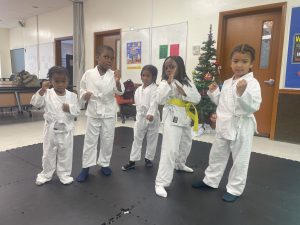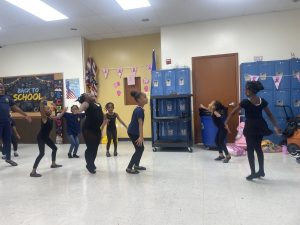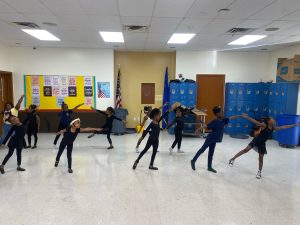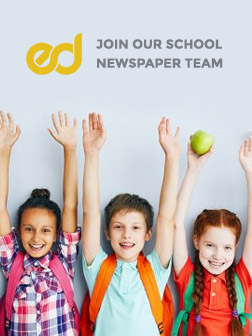At Phyls Academy, we recognize that learning goes beyond textbooks and structured lessons. Music and movement play a vital role in early childhood development, helping young learners build essential cognitive, social, and motor skills in a fun and engaging way.
From clapping along to rhythms to dancing freely to a favorite song, music and movement activities stimulate the brain, support emotional growth, and foster creativity. But how exactly do these activities contribute to a child’s development? Let’s explore!
Cognitive Benefits: Boosting Brain Development
Music and movement are powerful tools that enhance brain function. Studies show that when children engage with music, they develop better memory, problem-solving skills, and early math abilities.
🎵 Language and Literacy Growth – Singing songs and reciting rhymes help children improve vocabulary, pronunciation, and listening skills.
🧠 Memory and Concentration – Learning song lyrics or repeating rhythmic patterns strengthens a child’s ability to retain and recall information.
🔢 Math and Spatial Awareness – Clapping beats, counting rhythms, and recognizing patterns in music introduce early math concepts like sequencing and counting.
Social and Emotional Benefits: Encouraging Connection and Confidence
Music and movement encourage social interaction, emotional expression, and teamwork, helping children develop key social-emotional skills.
🤝 Cooperation and Teamwork – Group activities like singing in a circle or dancing together teach children how to take turns, listen to others, and work as a team.
😊 Self-Expression and Confidence – Music provides a creative outlet for emotions, helping children express their feelings and build confidence in their abilities.
❤️ Emotional Regulation – Soothing melodies can calm a restless child, while upbeat music can boost energy and excitement, teaching kids how to manage emotions through rhythm and sound.
Physical Benefits: Strengthening Motor Skills and Coordination
Movement-based activities are essential for developing both gross and fine motor skills in young children.
💃 Balance and Coordination – Dancing, jumping, and swaying help strengthen core muscles and improve overall coordination.
✋ Fine Motor Development – Playing small instruments like maracas or tapping fingers to a beat enhances hand-eye coordination and dexterity.
🏃 Physical Fitness and Health – Engaging in active movement through music promotes healthy habits, keeping children active and energized.
How Phyls Academy Incorporates Music and Movement for Early Childhood Development
At Phyls Academy, we integrate music and movement into our daily curriculum to create an engaging and dynamic learning experience.
🎶 Music Time – Students participate in sing-alongs, rhythm games, and instrument play to reinforce early literacy and math skills.
🎭 Creative Dance and Movement – Guided dance activities help children develop motor coordination, self-expression, and body awareness.
🌎 Cultural Exploration – We introduce children to diverse musical styles and dance traditions, helping them appreciate different cultures.
The Joy of Learning Through Music and Movement
When children engage in music and movement activities, they are not just having fun—they are building essential skills that will support their academic and personal growth for years to come. At Phyls Academy, we celebrate the power of music and movement in shaping confident, creative, and well-rounded learners.
Want to learn more about our enriching programs? Visit our website or contact us today! 🎵💃✨ #PhylsAcademy #MusicAndMovement #EarlyChildhoodDevelopment

